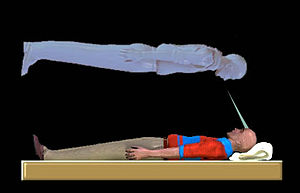“Ethical statements are merely an expression of emotion”. Discuss.
Meta-ethics is a different field of ethics do normative ethics. The term Meta derives from the Greek word above or beyond. This Meta-ethics looks further than ethical theories by looking at terms used in ethics, such as “good” and “right”. Whilst normative ethics decides which things are right or wrong, giving us a moral guide, Meta-ethics attempts to make sense of the concepts the theories purport. In order to fully understand theories such as Utilitarianism, one needs to understand the terms used. Meta-ethical theories fall into two main groups. Firstly there is ethical cognitivism, which holds the belief that ethical statements derive from sensual experience and are objective. Secondly there is ethical non-cognitivism, which states moral values cannot be derived from sense experience, so cannot be described as either true or false, so are thus subjective. One non-cognitivist theory is emotivism, which holds moral statements are based on emotion. Either way there are serious implications. If morality is indeed based on emotion, than morality is not entirely rational, as emotions are often not based on reason. Perhaps then, moral statements are meaningless is based on irrational emotion, and should not be followed, especially as emotions are so variable and thus entirely subjective. If there is no divine guidance behind emotions, morality could instead be traced back to simply being an arbitrary evolutionary concept.
Ethical naturalism or logical positivism is an example of a cognitive theory. Ethical naturalists, such as F.H.Bradley would state ethical statements are not merely expressions of emotion, and instead need to be verified by fact. Ethical statements in the eyes of ethical naturalists are the same as any other type of statement, in that they can be verified with facts, or falsified with contradicting facts. This is somewhat similar to Hume’s belief that things can only be real or meaningful if verified by the sense. Because of the emphasis on fact, ethical statements become objective and not relative as a statement based on emotion would be. An example of an ethical naturalist reasoning is “abortion is wrong because it kills a foetus”. This holds the factual support of death, and the statement that it is wrong. The main criticism of Ethical naturalism is the naturalistic fallacy argued by G.E.Moore. Moore in Principia Ethica argued that attempting to identify goodness with a natural quality is a mistake as moral statements cannot be defined by using evidence. He based this from Hume’s philosophy, in particular his idea that you cannot “derive an ought from an is”. According to Moore, goodness is a “non-natural property” which is indefinable. Ethical naturalism fails as it cannot fully justify why something is wrong. Stating “abortion is wrong because it kills a foetus” is insufficient, as it does not explain why killing a foetus is bad. It is just as logical to say “abortion is right because it kills a foetus”, as this too gives no further justification. Therefore ethical naturalism cannot fully counter the idea that ethical statements are merely expressions of emotion.
Instead of ethical naturalism, Moore puts forth his own concept of meta-ethics, called intuitionalism. Moore states good is an unanalysable property, as indescribable as the colour blue. Intuitionalism’s versions of good is indeed similar to a colour, in that it cannot be broken down any further than what it is, and is just recognised with intuition. Moore summarised this idea by saying “If I am asked “what good is?” my answer is that good is good, and that is the end of the matter”. I feel that this is not a suitable approach to ethical statements however as it attempts to verify good by intuition, which cannot really prove anything by itself as good so Moore fails by his own standards. H.A.Pritchard is also an intuitionalist. He says ethical statements are based on intuition as well all recognise the properties of the word “ought” even though it has no definition. According to Pritchard, our intuition will show if a particular action is right and where our moral obligations lay in any situation. Pritchard attempted to overcome the criticism that people had differing intuitions by saying some people had furthered their moral thinking, but I find this is not an apt way to overcome the criticism as he fails to explain why. He also seems to be suggesting that intuition cannot be used by everyone and is not universal, but it seems impossible to say whose intuition is right. Intuitionism does not seem to justify ethical statements being based on something other than emotion.
As people have different “intuitions”, a non-cognitivist theory is implied. An example of this is emotivism, which suggests ethical statements are simply expressions of emotion. Emotivists say there is no objective ethical knowledge as ethical judgements are not the sort of statements that van be true or false. Emotivism does not say what you should do to live morally, and in the words of A.J.Ayer “ethical terms do not serve only to express feelings. They are calculated also to arouse feeling and so to stimulate action”. In short, ethical statements are simply an expression of approval or disapproval. Any empirical truth according to Ayer, who was heavily influence by the Vienna circle, can only be understood through linguistic analysis, and any universal statements are “nonsense” without meaningful significance. As ethical statements according to emotivism are no verifiable they are essentially meaningless and can only be understood as an expression of feeling. Thus emotivism is sometime known as a “boo/hurrah” theory, as we simply boo actions we do not like, but hurrah what we say is right, for example “hurrah for war in Iraq”. James Rachels criticises this saying it is “simple subjectivism”, and “where morality is concerned, there are no facts and no one is “right”’. Hare claimed humans are to complex for morality to be reduced to simply “boo/hurrah” and morality needs to involve reason. Hare claimed he cannot accept acts such as the holocaust as imply being reduced to “It was wrong because I feel killing is bad”. Although simplicity is not wrong by default, Hare makes a poignant point. Stevenson, another Emotivists, avoids this criticism somewhat, as he would claim emotivism is not arbitrary, i.e. not simple subjectivism as our emotions are closely linked to our experiences and how we want the world to be. Whilst it is still subjective, there can be rational reasons for it. My emotions may tell me something is wrong, but this is based on previous experience which tells me this something leads to bad effects. Stevenson’s approach is perhaps the one I feel is closest to me own views, because essential morality is relative, and can be traced to emotions. He supports me in the belief that emotions are not arbitrary, but have developed over an evolutionary and maturity period, and are thus based on some reason.
Hare rejected emotivism due to its apparent lack of rationality. Instead Hare advocates prescriptivism, the idea that ethical statements are meaningful by prescribing a course of action, similar to a Dr’s prescription to a patient. Hare attacked the distinction between facts and values and attempted to show that ethical language is prescriptive, in that the role of ethical statements is to say what ought to be done. This prescriptions are moral because of the their universal value.











